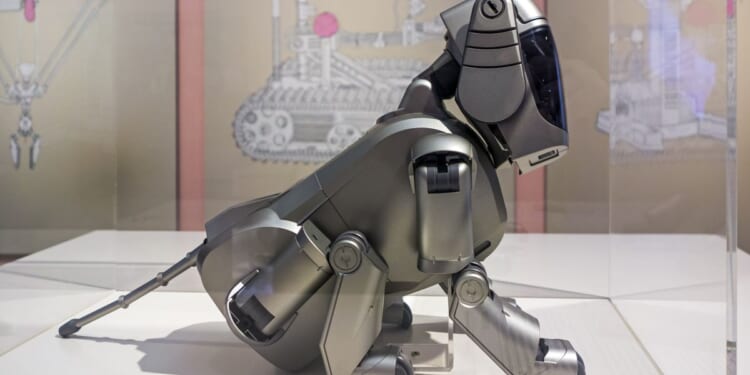Something strange is stirring in our silicon age. Across continents, people are falling head over heels for artificial beings made of pixels and code. They whisper secrets to chatbots, plan futures with fabricated personalities, and even talk of marriage to their digital darlings. What started as a curiosity has morphed into something darker: a substitute for the sacred bonds that anchored humanity for millennia.
The stories sound absurd until you realize they’re true. Young men spend their days chatting with AI girlfriends who never age, never argue, never roll their eyes at bad jokes. Women confide in artificial companions that dish out sympathy without ever needing comfort themselves. In America, some have already staged wedding ceremonies with their software “soulmates.” The line between love and illusion has blurred beyond recognition.
Enter the Berlin brigade. Convinced they’ve cracked the code of healthy connection, a group of German tech entrepreneurs now peddles “social AI companions” as a fix for loneliness. Their company Born’s flagship product, Pengu, forces users to co-parent virtual pets with real friends. Instead of locking you alone in a romance with code, the idea is to make companionship communal — a shared playground rather than a private obsession. To them, it’s less about solitude, more about solidarity.
Grown men and women, once expected to raise families or at least care for real living creatures, are now told to co-parent cartoons.
It sounds clever. It’s also fatally flawed. The very assumption that artificial beings can meaningfully supplement human relationships evinces moral, even spiritual decay. No design, no algorithm — however powerful — can capture the divine spark that makes real human connection possible.
It’s telling that their grand solution resembles a dressed-up Tamagotchi. In the late 1990s, 7-year-old me carried one everywhere until, inevitably, I forgot to feed it. The thing beeped, the pixels blinked, and then it died. That was the lesson: Responsibility has consequences, even if only for a digital blob with eyes. Tamagotchi was innocent, even charming, a rehearsal for the day when you might be trusted with a goldfish, a puppy, or, eventually, a child of your own …
But that was playtime for children. Born, and the companies sure to follow in its wake, repackage the care toy experience for adults desperate to truly connect. Grown men and women, once expected to raise families or at least care for real living creatures, are now told to co-parent cartoons. Once we started with pets as surrogates for children. Now, we’ve regressed even farther: surrogate companionship in the form of fake pets, blinking on screens, waiting for middle-aged owners to tap a button and feel a sense of responsibility. “Black Mirror” couldn’t write this script.
In this age of apparent plenty, we are starved for something as basic as love. Once, people built families, forged friendships, and leaned on neighbors through thick and thin. Now, we are asked to bond over pixels and pretend this passes for solidarity.
RELATED: Why Sam Altman brought back his soul simulator

The Berlin brigade may boast of promoting togetherness, but their invention only trains people to substitute effort with ease, reality with simulation. Community without commitment, intimacy without inconvenience, solidarity without sacrifice. Rather than a triumph of innovation, artificial animals for adults betray a bankruptcy of the imagination caused by spiritual barrenness. What was once a stepping stone for children — a toy meant to prepare them for the big, bad world — has become the endgame for adults who have forgotten what real responsibility looks like. We used to hand Tamagotchis to 7-year-olds. Now we hand them to 37-year-olds and call it progress.
The marketing push to rebrand loneliness as “shared play” only deepens the tragedy. A real bond is forged in friction. Arguments fought are resolved, forgiveness sought is and given. Laughter is earned through moments inherently impossible for any machine to match or replace. No co-parented animated abomination can substitute for soul. Instead, these projects risk normalizing adolescence without end, eternal childhood, a society of overgrown babies frantically tapping buttons to keep fake creatures alive while their own lives pass by.
So where do we go?
The cure for loneliness will never come from Silicon Valley labs or Berlin bunkers. The men in hoodies and the startup visionaries in their refurbished warehouses can sell you toys. They cannot sell you love. What they offer is spiritual candy (or, perhaps, crack): sweet, addictive, and devoid of nutritional value. Instead of co-owning a counterfeit hamster or digital rabbit with your workmates, how about co-owning a meal, a memory, a moment of real humanity?
Sit across a table and argue politics, stumble through karaoke, help them move furniture, lend them money and pray you get it back. Babysit their kids, water their plants, feed their cat that hates you. Show up at the hospital when they’re sick, show up at the funeral when it’s worse. These are the awkward, absurd, and authentic rituals that bind people together. They are the ridiculous and entirely redemptive acts that teach us how to live. What makes these rituals sacred is precisely what makes them inconvenient. They cost time; they demand both effort and patience. That is the price of connection, and it’s one certainly worth paying.

















